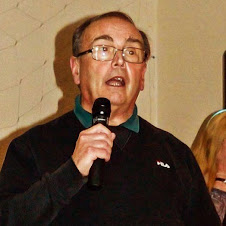My heart sank when I learned of the attack on Paul Pelosi, husband of the Speaker of the US House of Representatives, Nancy Pelosi. I have blogged a number of times about the threat to democracy that I, in my idiosyncratic way, perceive as having a worldwide dimension, and this fortunately non-lethal attack confirms it for me. And Mr Pelosi truly was lucky. He suffered a fractured skull and injuries to his limbs but is making a good recovery. Mr Pelosi, though, was not the intended target of the attacker, David DePape. His wife, Nancy, was the target, but she was away from home.
Nancy Pelosi is a hate figure for people such as DePape. His social media accounts and website show him to be a right-wing extremist, typical of the insurrectionary mob that stormed the US Capitol building. According to the BBC, he expresses virulent anti-Semitic views, is a Holocaust denier and shares the widespread Trumpian view that the 2020 presidential defeat of Trump was a colossal electoral fraud. This places him firmly in the ranks of the thugs who stormed the Capitol shouting for Nancy Pelosi's blood. Mrs Pelosi was escorted hurriedly from the Capitol that day, and it was probably just as well.
Given this event, and the fact that so many Trump supporters are prepared to advocate violence - and use it - it is no surprise that, as the BBC says:
"Hours after the attack, the US government distributed a bulletin to law enforcement across the nation warning of a "heightened threat" of domestic violent extremism against candidates and election workers driven by individuals with "ideological grievances".
Democrat voters, and the more intelligent Republican party supporters, must be feeling seriously apprehensive about the upcoming November election. Violence at election time is nothing new to the USA, but this time, it seems to pose a more widespread and better organised threat. And it is already showing signs of how bad it could become.
In Arizona, there have been many reports of masked individuals with firearms staking out ballot drop boxes, purportedly to monitor the sites for election fraud. They've posted photographs of individuals casting their ballots on right-wing social media sites and encouraged others to join their efforts.
In June, a man was arrested near the home of Supreme Court Justice Brett Kavanaugh. He had travelled to Washington from California and called police after he arrived to tell them he had a gun and intended to kill Justice Kavanaugh.
In July, Republican candidate for governor of New York, Lee Zeldin, was attacked while on stage during a campaign rally. Congresswoman Pramila Jayapal, of the Democratic Party, was threatened by a gunman outside her Seattle home. He was arrested and charged with felony stalking.
And this is in the early stages of the Congressional election campaign. As the US authorities recognise, the political violence could get a lot worse leading up to polling day. After the election, whoever wins, be it Republicans or Democrats, there could be problems for the Democrats and non-Trumpite Republicans. If the Republicans win, they have many candidates who believe that Joe Biden won the presidential election by fraudulent means. This would surely lead to an end to the investigation into the attack on the US Capitol building last January. Other progressive Democrat measures, such as abortion rights and gun control would also be curtailed. If the Democrats win, there will inevitably be a violent and virulent reaction from the pro-Trump wing of the Republican Party, who will denounce the result (again) as fraudulent. The more extreme members of this group will undoubtedly resort to direct action or violence of some kind. Election officials in some states have already faced violence and intimidation and it would surely happen again. Some of the lunatic right-wing fringe groups are already threatening civil war. That, hopefully, will not happen, but serious violence is a viable and chilling prospect, placing American democracy itself in potential jeopardy.

While we are right to be concerned for democracy in the USA, we must not be complacent about similar threats over here. When I learned about the attack on Paul Pelosi, I though straight away of
Jo Cox and
Sir David Amess, two British MPs murdered by two extremists from different ideologies, both murderers being as vile and unhinged as the man who launched the Pelosi attack. Sir David was killed by a Muslim fanatic and Jo Cox by a right-wing extremist. There have been other attacks by both groups, as we all know, against MPs, police and the general public. The group in the picture above,
National Action, has a similar outlook to many right-wing US groupings. Some members have been involved in at least one plot to attack a serving
MP - Rosie Cooper, The TV programme, "
The Walk-In", starring Stephen Graham as Matthew Collins, head of intelligence for
Hope not Hate ,tells the story of the neo-Nazis' plans and how they were foiled. National Action was proscribed in December 2016, but its former members who are not in jail remain active in other extreme right-wing groups.
"Since March 2017, counter-terrorism police and the intelligence services have stopped 32 plots they assess as aiming to cause mass casualties on British soil. Of these they assess 18 were Islamist related, and 12 were triggered by extreme rightwing terrorist ideology...Although the death toll in the UK from the extreme right wing has numbered single victims so far, including the assassination of Jo Cox MP in 2016, mass murders in Christchurch and now Buffalo give the lie to any notion the ideology is any less effective at delivering carnage."We cannot afford to regard the problems of American democracy as inviolably separate from our own. Any violent actions by the US far-right against those they perceive as their enemies will inspire emulation here. We must watch the events in the USA during and after the midterm elections with close attention and, speaking for myself, with apprehension.




